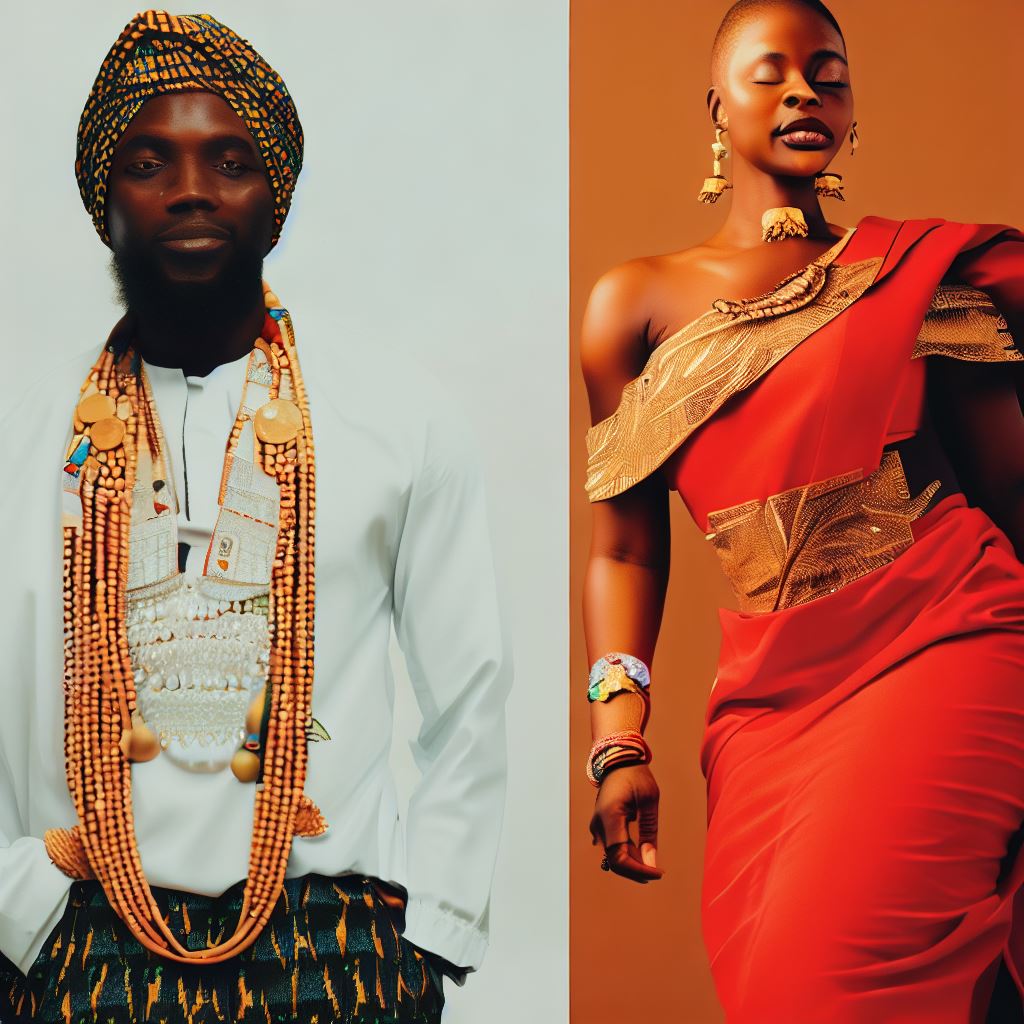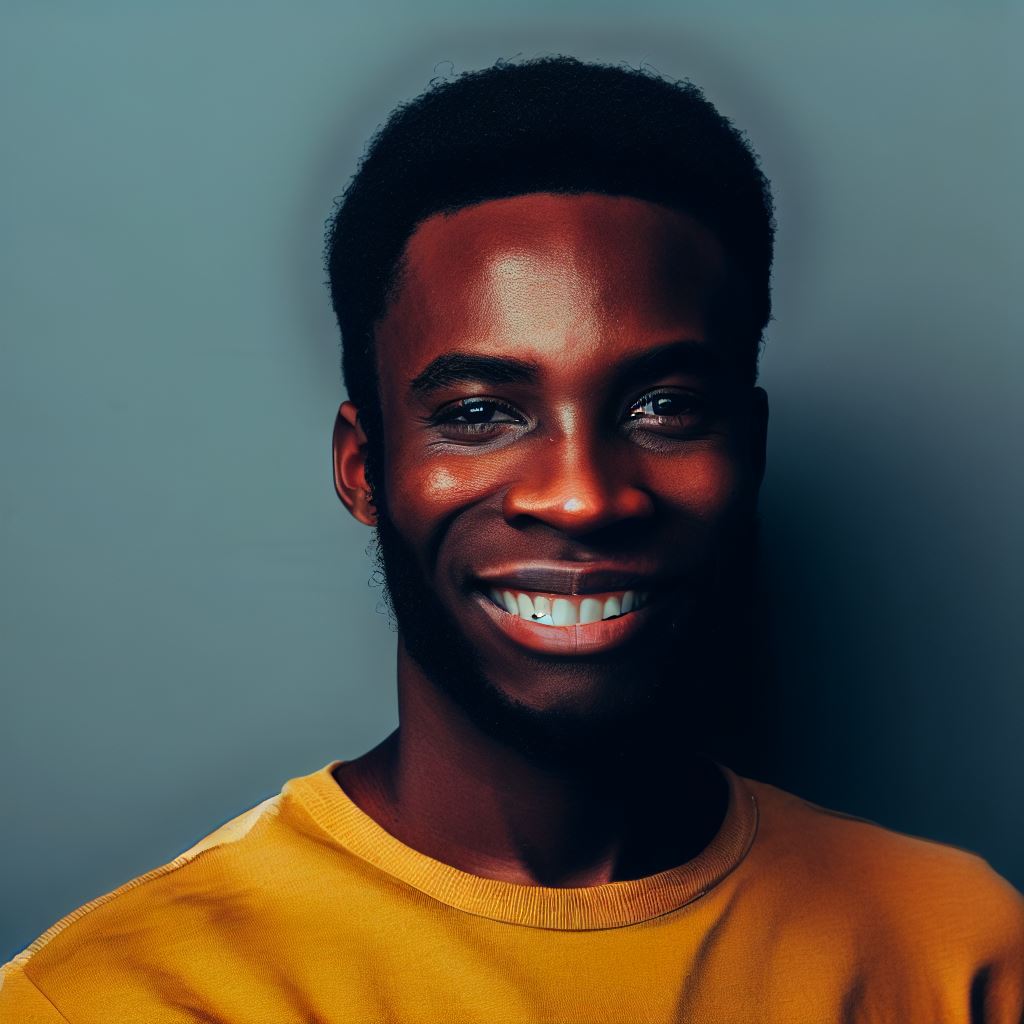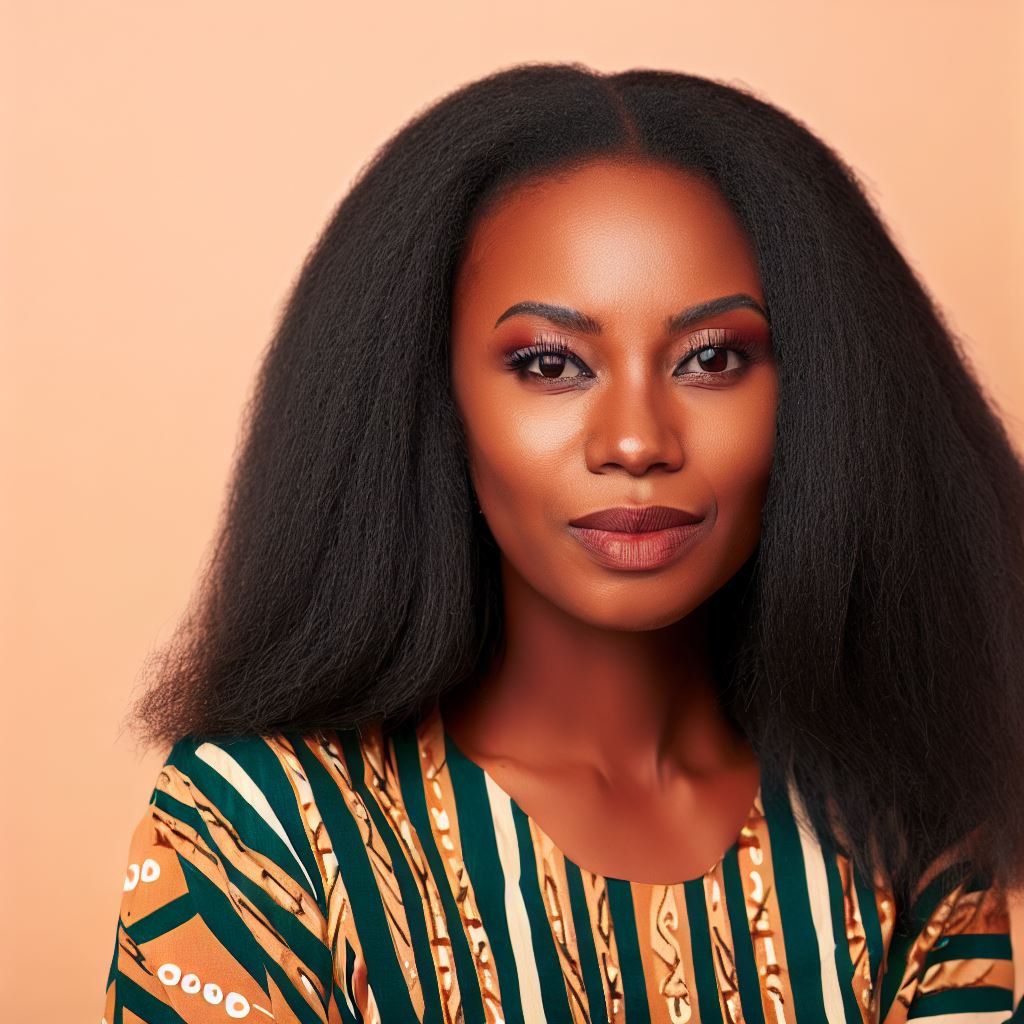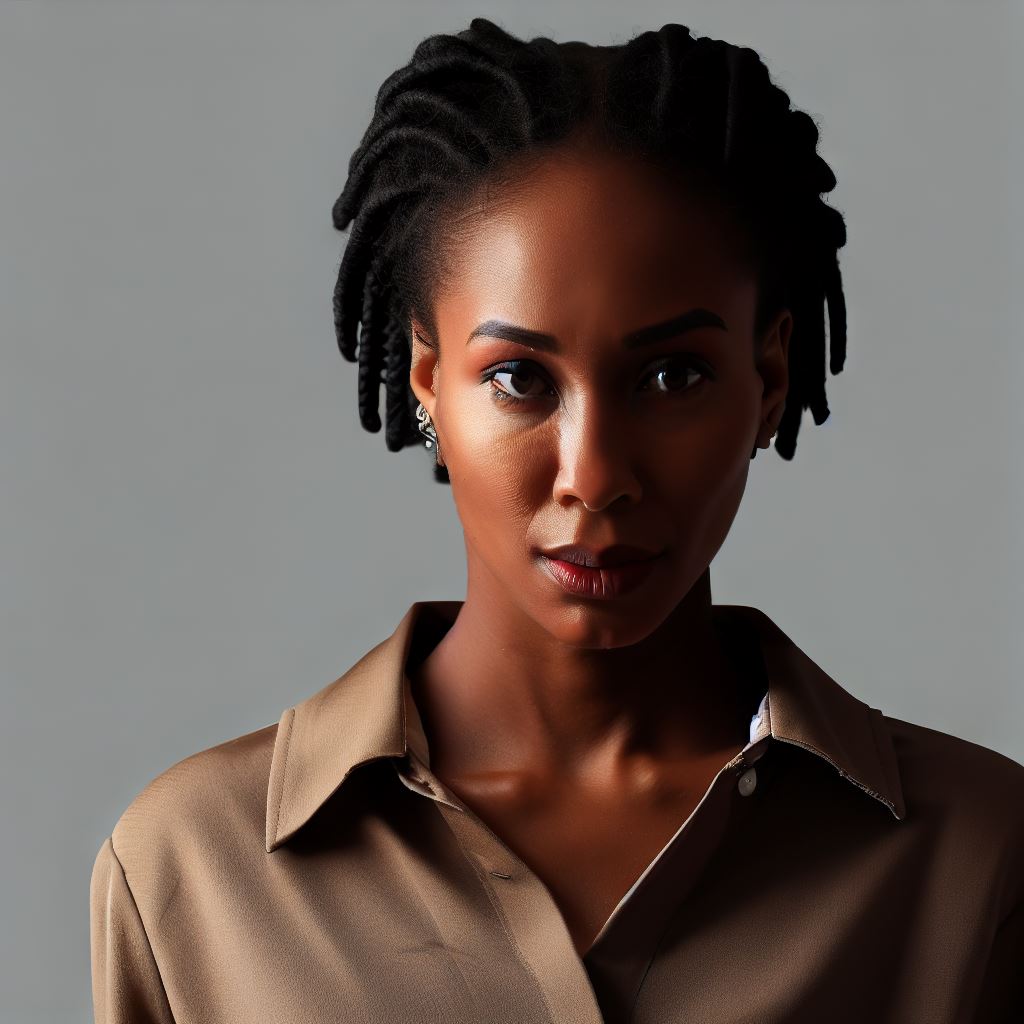Introduction
Nigeria, renowned for its vibrant culture and rich history, has firmly established itself as a fashion industry powerhouse.
This blog post aims to shed light on the top Nigerian designers shaping fashion’s future.
Through their innovative designs and creative prowess, these designers not only showcase their talent but also contribute significantly to the growth and development of the fashion industry in Nigeria and beyond.
The fashion industry plays a crucial role in Nigeria’s economy, generating employment opportunities and boosting the country’s international image.
Nigerian designers skillfully merge traditional African aesthetics with modern trends, crafting captivating and distinctive designs that earn global acclaim.
These designers serve as cultural ambassadors, promoting the rich heritage and diversity of Nigeria through their creations.
By incorporating traditional Nigerian fabrics and techniques into contemporary designs, they bring a fresh perspective to the fashion scene.
Furthermore, they provide a platform for local artisans to showcase their skills and craftsmanship, thus preserving and promoting traditional art forms.
Nigerian designers also contribute to the socio-economic development of the country.
Through their fashion businesses, they create employment opportunities and empower individuals, especially women, to become financially independent.
Additionally, they foster entrepreneurship and encourage creativity within the industry, inspiring a new generation of designers to follow their passion.
Basically, Nigerian designers hold significant importance in the fashion industry, both locally and globally.
Their innovative designs, cultural representation, and socio-economic contributions make them indispensable to the growth and evolution of fashion.
This blog post aims to spotlight these designers and their remarkable achievements, showcasing the talent and creativity shaping Nigerian fashion’s future.
Brief Overview of the Nigerian Fashion Industry
Historical background
Nigeria’s fashion industry has a rich and diverse history, deeply rooted in the cultural heritage of its people.
Traditional Nigerian attire, with its vibrant colors and unique patterns, has long been celebrated for its beauty and craftsmanship.
The country’s fashion scene has evolved over time, drawing influences from various cultures and global fashion trends.
In the early years, Nigerian fashion mainly revolved around traditional clothing, such as the flowing Agbada for men and the elegant Ankara fabric for women.
These garments not only served as a form of self-expression but also played a significant role in cultural ceremonies and celebrations.
However, as the country experienced modernization and globalization, the fashion industry began to shift towards a more contemporary and Westernized approach.
Growth and recognition in recent years
In the past decade, Nigerian fashion designers gained recognition due to social media, technology, and a growing middle class.
Key catalysts include fashion events like Lagos Fashion Week and Africa Fashion Week Nigeria.
Fashion bloggers and influencers promote Nigerian fashion globally.
Designers like Lisa Folawiyo and Deola Sagoe showcased at New York Fashion Week, blending traditional and contemporary designs.
The government supports the fashion industry through initiatives like “Made in Nigeria” and fashion hubs, creating jobs and boosting GDP.
Designers embrace sustainability, inclusivity, and technology, ensuring a promising future for Nigerian fashion.
Essentially, Nigerian fashion’s growth is fueled by innovation, global exposure, government support, and a commitment to progress.
Read: Understanding the Role of Women in Nigeria’s Design Scene
Rising Stars: Top Nigerian Designers
Mowalola Ogunlesi – Background, Style, and Notable Achievements
Mowalola Ogunlesi, a Nigerian fashion designer, has gained recognition for her bold and innovative style.
Born and raised in Lagos, Mowalola developed a passion for fashion at a young age.
After studying at Central Saint Martins in London, she launched her eponymous brand in 2017.
Mowalola’s designs often incorporate vibrant colors, unique prints, and daring silhouettes that challenge traditional norms.
Her work revolves around themes of identity, gender, and sexuality, making a powerful statement through fashion.
Notably, Ogunlesi was named the Fashion Designer of the Year at the 2020 GQ Men of the Year Awards.
Her designs have garnered attention from celebrities such as Solange Knowles, Skepta, and Drake.
Mowalola Ogunlesi’s creations are known for their boundary-pushing nature, pushing the boundaries of African fashion.
Adebayo Oke-Lawal – Background, Style, and Notable Achievements
Adebayo Oke-Lawal is a Nigerian fashion designer and the founder of the fashion brand Orange Culture.
Born and raised in Lagos, Oke-Lawal’s passion for design led him to create a brand that challenges gender norms and embraces diversity.
Orange Culture blurs gender lines with androgynous designs, reflecting Oke-Lawal’s architectural background through meticulous attention to detail.
His designs often feature vibrant prints, bold colors, and unique textures, showcasing the rich cultural heritage of Nigeria.
Adebayo Oke-Lawal received the “Fashion Foundry Prize” at the International Fashion Showcase in 2018. His brand graced Vogue, Elle, and GQ, gaining global acclaim.
Adebayo Oke-Lawal continues to use his platform to advocate for inclusivity and representation in the fashion industry.
Yomi Casual – Background, Style, and Notable Achievements
Yomi Casual, whose real name is Olorunyomi Makun, is a Nigerian fashion designer known for his contemporary menswear designs.
Born and raised in Lagos, Yomi Casual comes from a family of tailors, which influenced his interest in fashion.
His designs are characterized by their clean lines, impeccable tailoring, and use of vibrant colors.
Yomi Casual’s collections cater to the modern Nigerian man, offering a mix of traditional and western influences.
His notable achievements include winning the “Fashion Designer of the Year” award at the Nigerian Entertainment Awards.
Yomi Casual has dressed numerous Nigerian celebrities and has showcased his designs at various fashion weeks.
He continues to contribute to the growth of the Nigerian fashion industry through his innovative designs and attention to detail.
In fact, Mowalola Ogunlesi, Adebayo Oke-Lawal, and Yomi Casual are among the rising stars shaping the future of Nigerian fashion.
Through their unique styles, notable achievements, and dedication to pushing boundaries, these designers are making a significant impact on the global fashion scene.
Read: A Guide to Building a Design Career in Lagos, Nigeria
Established Icons: Trailblazing Nigerian Designers
Deola Sagoe – Contribution to the industry and influence on the global stage
Deola Sagoe is a renowned Nigerian designer who has made significant contributions to the fashion industry both in Nigeria and internationally.
With her unique designs and innovative approach, she has become one of the leading figures in the Nigerian fashion scene.
Sagoe’s contributions to the industry can be seen in her ability to seamlessly blend traditional African fabrics and aesthetics with modern designs.
This fusion has not only propelled her to success but has also showcased Nigeria’s rich cultural heritage on the global stage.
Her influence goes beyond just her designs. Sagoe has also played a pivotal role in supporting and promoting other Nigerian designers, providing them with a platform to showcase their talents.
By doing so, she has helped foster a vibrant and thriving fashion industry in Nigeria.
Folake Folarin-Coker – Contribution to the industry and influence on the global stage
Folake Folarin-Coker is another Nigerian designer who has had a significant impact on the fashion industry. She is the founder of Tiffany Amber, one of Nigeria’s most successful fashion brands.
Folarin-Coker’s contribution can be seen in her ability to create designs that seamlessly blend modern and traditional elements.
Her signature style is characterized by elegant silhouettes, vibrant colors, and intricate detailing.
Her influence extends beyond Nigeria, as she has showcased her collections at various international fashion events and has dressed several celebrities.
This global recognition has helped put Nigerian fashion on the map and has paved the way for other designers to follow in her footsteps.
Ade Bakare – Contribution to the industry and influence on the global stage
Ade Bakare is a Nigerian designer who has made significant contributions to the fashion industry, particularly in the realm of bridal wear. His designs are known for their exquisite craftsmanship and attention to detail.
Bakare’s influence can be seen in his ability to bring a modern twist to traditional bridal wear, creating designs that are both timeless and contemporary.
His work has been featured in various international publications and worn by celebrities.
Furthermore, Bakare has actively supported and mentored young Nigerian designers, helping them grow and thrive in a competitive industry.
Through his guidance and expertise, he has played a vital role in shaping the future of Nigerian fashion.
In essence, these established Nigerian designers have made remarkable contributions to the fashion industry and have had a profound influence on the global stage.
Through their unique designs, support for fellow designers, and ability to fuse traditional and modern elements, they have not only placed Nigerian fashion on the international map but have also paved the way for the next generation of Nigerian designers.
Read: An Introduction to Costume Designing in Nigeria’s Film Industry
New Generation: Emerging Nigerian Designers
As Nigerian fashion continues to gain international recognition, a new generation of talented designers is emerging.
These designers are pushing the boundaries of traditional Nigerian fashion and bringing their unique styles and approaches to the industry.
Taiwo Odukoya – Unique style and approach to fashion
Taiwo Odukoya is an up-and-coming Nigerian designer known for his unique style and approach to fashion. He combines traditional Nigerian fabrics and techniques with modern silhouettes and designs.
- Odukoya’s designs often feature bold prints, vibrant colors, and intricate details.
- He draws inspiration from Nigerian culture, history, and art, incorporating these elements into his collections.
- Odukoya’s work has been well-received both locally and internationally, earning him a spot among the top Nigerian designers.
Rita Adeola – Unique style and approach to fashion
Rita Adeola is another emerging Nigerian designer who is making waves in the fashion industry with her unique style and approach.
- Adeola is known for her avant-garde designs and unconventional use of materials.
- She experiments with different textures, fabrics, and patterns to create visually striking and thought-provoking pieces.
- Adeola’s designs challenge traditional notions of femininity and beauty, embracing diversity and individuality.
Blessing Awodibu – Unique style and approach to fashion
Blessing Awodibu is a young Nigerian designer who is quickly gaining recognition for her unique style and approach to fashion.
- Awodibu’s designs are characterized by their clean lines, minimalist aesthetic, and attention to detail.
- She focuses on creating timeless pieces that can be worn in various settings and for different occasions.
- Awodibu’s designs often feature sustainable and ethically sourced materials, reflecting her commitment to eco-conscious fashion.
These emerging Nigerian designers represent the future of Nigerian fashion. Through their unique styles and approaches, they are shaping the industry and pushing it to new heights.
As they continue to gain recognition and build their brands, it is clear that Nigerian fashion has a bright future ahead.
From Taiwo Odukoya’s fusion of traditional and contemporary designs to Rita Adeola’s avant-garde creations, and Blessing Awodibu’s commitment to sustainability, these designers are leaving an indelible mark on the fashion world.
Their innovation, creativity, and dedication to their craft are inspiring a new generation of designers and fashion enthusiasts in Nigeria and beyond.
It is important to celebrate and support these emerging talents as they pave the way for a more diverse and inclusive fashion industry.
As we eagerly anticipate what they will bring to the table in the coming years, there is no doubt that the future of Nigerian fashion is in safe hands.
Read: Costume Design: Nigeria’s Soft Power in African Fashion
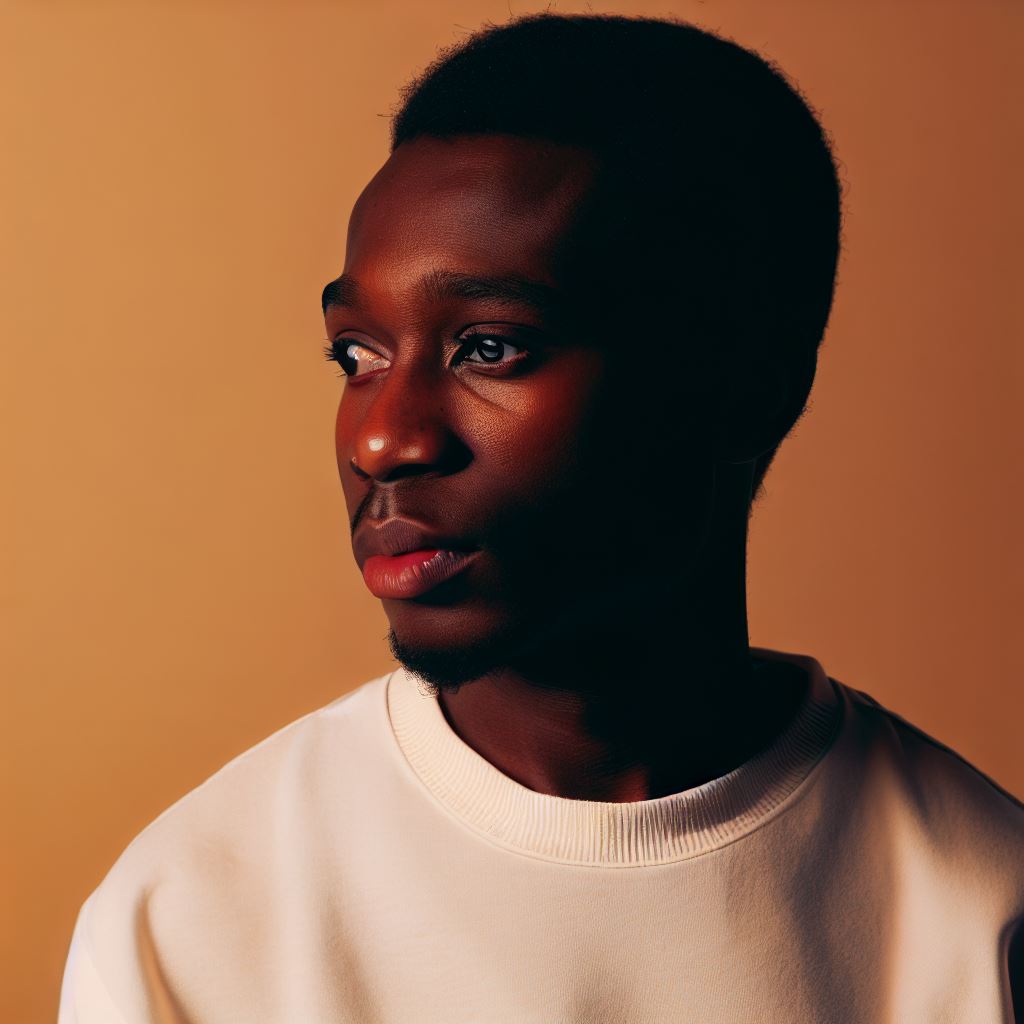
Impact on Nigerian Fashion Industry
Growth of the Nigerian fashion industry
- Nigerian designers have played a significant role in the growth of the fashion industry.
- Their creativity and originality have propelled the industry to new heights.
- Designers like Lisa Folawiyo and Deola Sagoe have made Nigerian fashion globally recognized.
- By showcasing Nigerian culture in their designs, they have attracted a wide audience.
- Investments in fashion infrastructure and support for designers have fueled the industry’s growth.
International recognition and collaborations
- Nigerian designers have gained recognition from the international fashion community.
- These collaborations have not only boosted the designers’ profiles but also put Nigerian fashion on the map.
- International fashion events now feature Nigerian designers, exposing them to a broader audience.
- Partnerships with international retailers have expanded the reach of Nigerian fashion globally.
Influence on global fashion trends
- Nigerian designers are influencing global fashion trends with their unique styles.
- The vibrant colors and bold prints commonly used in Nigerian fashion have become popular worldwide.
- Designers like Maki Oh have introduced traditional Nigerian techniques to the global fashion scene.
- Nigerian fashion now serves as a source of inspiration for designers in other parts of the world.
- The fusion of African and Western styles by Nigerian designers has created a new fashion aesthetic.
In summary, Nigerian designers have had a significant impact on the fashion industry in Nigeria and around the world.
Their creativity and originality have contributed to the growth of the Nigerian fashion industry, attracting international recognition and collaborations.
Additionally, their unique styles and designs have influenced global fashion trends, making Nigerian fashion a source of inspiration for designers worldwide.
With continued support and investment, Nigerian designers will continue to shape the future of the fashion industry.
Publish Your Professional Profile, Business or Brand
Showcase your expertise, gain trust, and boost visibility instantly on Professions.ng.
Publish NowChallenges Faced by Nigerian Designers
Lack of infrastructure and resources
- Insufficient funding hinders designers from acquiring necessary tools and equipment.
- Limited access to reliable electricity disrupts production, leading to delays and increased costs.
- Inadequate transportation systems make it difficult to source materials and deliver finished products.
Limited access to international markets
- Nigerian designers struggle to establish connections with global retailers and buyers.
- Lack of knowledge about international market trends limits designers’ ability to create marketable products.
- High shipping costs and complex export regulations create barriers to entry in foreign markets.
Overcoming stereotypes and biases
- Nigerians face preconceived notions that their designs are of lower quality than those from other countries.
- Stereotypes about Africa being a homogeneous continent can hinder the recognition of individual Nigerian designers.
- Biases against African fashion being seen as “ethnic” or “tribal” rather than high fashion can limit opportunities.
In order to address these challenges, Nigerian designers must take certain steps:
- Seek partnerships with local and international organizations to secure funding for infrastructure and resources.
- Collaborate with government agencies to improve transportation systems and ensure reliable electricity supply.
- Actively participate in trade fairs and fashion weeks to establish connections with international retailers and buyers.
- Stay updated on global fashion trends by attending international fashion events and conducting market research.
- Form partnerships with experienced export agents to navigate complex shipping procedures and export regulations.
- Educate international audiences about the diversity and innovation present in Nigerian fashion to debunk stereotypes.
- Promote the uniqueness and quality of Nigerian designs through media campaigns and collaborations with influencers.
- Embrace technology and leverage e-commerce platforms to reach a wider audience and tap into international markets.
- Collaborate with other African designers to collectively showcase the richness and diversity of African fashion.
- Engage in dialogue with industry professionals and stakeholders to challenge biases and create opportunities for growth.
By addressing these challenges and implementing these strategies, Nigerian designers can overcome obstacles and shape the future of the fashion industry in Nigeria.
With increased access to resources, international markets, and a shift in perceptions, Nigerian designers can thrive and contribute to the global fashion landscape.
The Future of Nigerian Fashion
Potential for further growth and success
- Nigeria’s fashion industry has immense potential for further growth and success.
- The country’s large population provides a vast and diverse consumer base for Nigerian designers.
- There is a growing middle class in Nigeria with increasing disposable income, creating a demand for fashion products.
- Nigerian fashion designers have been gaining international recognition for their unique and innovative designs.
- Global fashion brands are starting to take notice of the Nigerian fashion industry and its potential for growth.
Opportunities for collaboration and partnerships
- Nigerian designers can benefit from collaborations and partnerships with global fashion brands.
- These collaborations can offer exposure to international markets and help Nigerian designers expand their reach.
- Partnerships with fashion retailers and online platforms can provide Nigerian designers with increased visibility and sales.
- Collaborations with local artisans and craftsmen can promote traditional Nigerian techniques and craftsmanship.
- International fashion events and trade fairs provide opportunities for Nigerian designers to showcase their work and network with industry professionals.
The role of Nigerian designers in shaping the future of fashion
- Nigerian designers play a crucial role in shaping the future of fashion both locally and globally.
- They challenge stereotypes and showcase the richness and diversity of Nigerian culture through their designs.
- Nigerian designers bring a fresh and unique perspective to the global fashion industry.
- They incorporate traditional Nigerian fabrics, prints, and techniques into contemporary and modern designs.
- By promoting sustainable and ethical fashion practices, Nigerian designers are influencing the future of the fashion industry.
In short, the future of Nigerian fashion looks promising with its potential for further growth and success.
Nigerian designers have the opportunity to collaborate with global fashion brands, creating partnerships that can help them expand their reach and gain international recognition.
Additionally, Nigerian designers play a vital role in shaping the future of fashion by challenging stereotypes, showcasing Nigerian culture, and promoting sustainability.
With their innovative designs and incorporation of traditional techniques, Nigerian designers are making a significant impact on the fashion industry both locally and globally.
Explore Further: Nigeria’s Landscape Photography: Capturing the Beauty of Africa
Conclusion
Recap of the Significance of Nigerian Designers in the Fashion Industry
Nigerian designers are pioneers, shaping the future of the fashion world with their unique styles and innovation. They’ve not only made their mark on the local scene but have gained recognition globally.
Their work reflects Nigeria’s rich cultural heritage and diverse influences, making it truly distinctive.
Encouragement to Support and Celebrate Nigerian Fashion Talents
It’s vital to support and celebrate these remarkable designers.
By buying their creations and promoting their brands, we contribute to the growth of Nigeria’s fashion industry and empower talented individuals to reach new heights.
Let’s recognize and invest in their talent and vision.
Closing Thoughts
To sum it up, Nigerian designers are beacons of creativity and inspiration. They inspire us to embrace our roots while pushing boundaries.
As we spotlight their incredible contributions, let’s continue to champion their work, ensuring a bright and fashionable future for Nigeria and the world.

